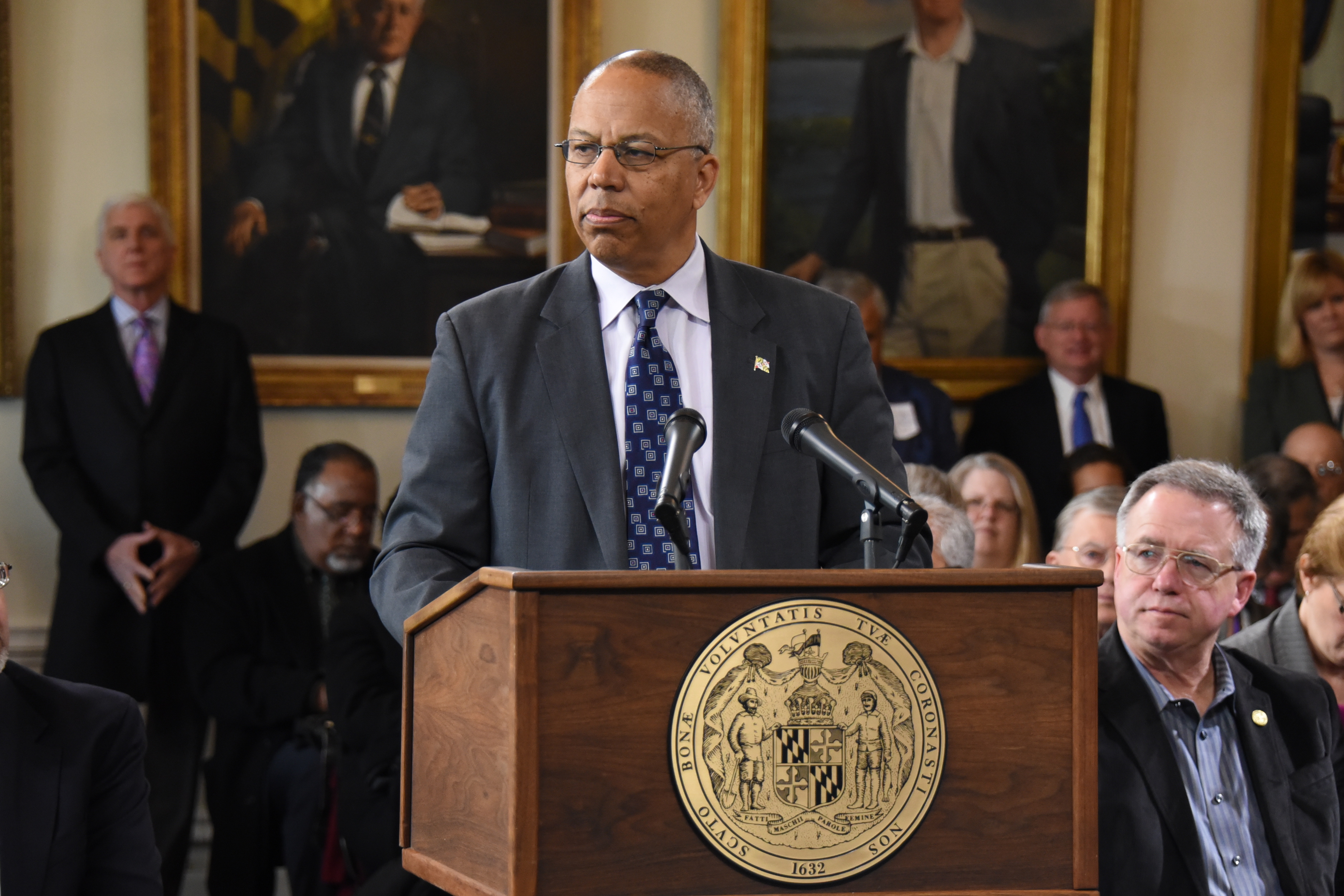By Ilana Kowarski
Ilana@MarylandReporter.com
The O’Malley administration is asking state legislators to take the final steps to implement the Affordable Care Act in Maryland, and pass another bill to pave the way for expanded health insurance under Obamacare.
The proposed Maryland Health Progress Act of 2013 would dedicate funding to the state health exchange and make other changes required by federal law before the Jan. 1, 2014 deadline .
In addition, this legislation would revise Maryland health policies in accordance with federal guidelines which require all insurance plans to provide certain essential benefits, such as mental health coverage and maternity services. It would also expand Medicaid coverage to include those with incomes at or below 133% of the federal poverty line, as dictated by Congress.
Lt. Gov. Anthony Brown told the House Health and Government Operations Committee that he strongly supported the Health Progress Act, which he described as “the last step of an extraordinary process” to implement the federal health reform law in Maryland.
Maryland among first states to implement act
“Because of your work… [Maryland] will be among the first states to bring the full benefits of the Affordable Care Act to families,” Brown said, adding that the policy would save the state money because the federal government would be picking up 100% of the tab for Medicaid in 2014 and 2015.
According to the Department of Legislative Services analysis, state health care spending will decline by $90 million in 2014 and $189 million in 2015 due to a doubling of federal aid during that period.
In subsequent years, the state will continue to reap millions in savings as a result of the Affordable Care Act, despite a gradual tapering off of federal aid, the department wrote in a fiscal note, adding that they projected a $682 million increase in funds to state health providers.
The legislative analysts expect health reform would improve Maryland’s economy, creating 9,000 new jobs. They also posed a potentially controversial argument that health reform will be financially beneficial to Maryland small businesses. Though these financial rewards were “difficult to quantify,” they said the benefits would likely be significant due to the availability of health insurance tax credits and business’ increased access to affordable coverage for employees.
No testimony in opposition
Not a single witness at Wednesday’s House committee hearing contested these findings or expressed opposition to state health reform.
Some proposed amendments to the Maryland Health Progress Act, but most of these proposed changes were minor, with the exception of persistent requests to accelerate and expand implementation of the continuity of care provision of the bill. This allows patients to switch insurance plans without fear that they will immediately be denied care for acute or chronic conditions, since they will have a grace period of 90 days during which their new insurance must pay for preauthorized care.
Right now, this “continuity of care” provision is scheduled to take effect in 2015, but many health reform advocates argue that this policy change should happen as soon as Maryland’s health exchange is created in 2014.
Some have asked state legislators to expand the list of medical conditions that would be covered by that provision to include mental illnesses or other conditions that are currently excluded. Several told delegates that they need to speed up enforcement of the continuity of care provision so that citizens could smoothly transition from one medical plan to another and successfully opt in to the state’s health exchange.
Advocates for single-payer option
Only two witnesses criticized the Maryland Health Progress Act during their testimony, but even they were supportive of its passage.
Lobbyists from Healthcare Now of Maryland chastised the delegates for not implementing a single payer health care plan, which they argued was the only policy that could guarantee accessible, quality medical care in Maryland. Dr. Deborah Schumann stressed that health care “is a human right,” and her colleague Ken Sandin agreed.
“Programs for the poor are always under-funded and supply second-rate care,” Sandin said. “If you support this legislation [without reservation], then you have more confidence than I do in the state’s willingness to adequately fund health care.”






Eye-opening stuff.
A genuine skeptic’s playground yet no speakers were invited in opposition.
I trust the Republican legislators will at least read the bill (a.k.a. Maryland Health Progress Act of 2013)
I imagine the Wakely Group (hired guns/consultants who investigated financing options for the Exchange) had a certain fait accompli and, as such, conducted their investigations absent an open mind. For instance, the operating budget of the MHBE for the calendar year ended 2015, 2016, and 2017 is estimated to be $34,916,005, $33,883,502, and $32,917,018 respectively. Nah, there won’t be any no scope creep in this complicated contraption. Impossible!
Here are a few thoughts any simple skeptic might consider:
I’d suggest that providers who opt to offer insurance outside the exchange be excluded from the tax levied to finance such exchange. In addition, I’d suggest the legislature carve out a small slice of the MHBE’s administrative cost for a dedicated, truly independent. Office of Inspector General to perform program and financial audits. Lastly, legislators might ponder a sunset provision on the whole idea.